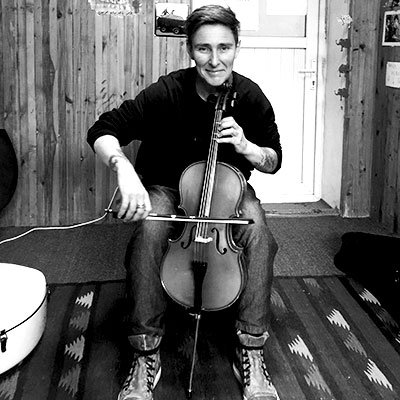
Eddie Ayres on why Classical music is the one true global language
From ABC Classic FM to Kabul, Afghanistan and beyond, Eddie Ayres' career and life story is strong, adventurous and inspirational. A musician, music teacher, author and presenter, Ayres explores why classical music is the one true global language and why we the people just need to listen.
If you look up the dictionary definition of 'classical music', you get the following: “Serious music following long-established principles rather than a folk, jazz, or popular tradition".
The classics. Classical ballet. Classic literature. Classical architecture. Classical music.
It all sounds a bit stuck in the past, doesn’t it?
Why would we be interested in stuff that people were making hundreds of years ago? It’s not exactly fresh, and what relevance does it have to us today? Shouldn’t we be listening and reading and watching art from our own time? How else are we going to be able to withstand our own problems? We have to deal with Donald Trump’s nuclear button-pressing thumb and the aesthetic shock of Tony Abbott’s budgie smugglers. Did Beethoven?
No, Beethoven did not. But the thing is, although Beethoven was dealing with problems of his own time, the depth of his artistry, and his humanity, meant he was also relating those problems to universal ones of all time. And classical music is not stuck in the past, never changing, dusty and dead. It is alive and kicking you in the shin and stroking your neck. It is here, now and this is why:
Classical music is the one true global language.
I know there are many traditions of music around the world, but it is Western Classical music that speaks to more people than any other. Which other music is taught from Caracas to Kabul?
In Kabul I taught cello to a young girl called Besheda. Besheda lived in a refugee camp in Kabul for internally displaced people. It was hell on earth – filthy, crowded, dangerous and with little protection from the viciousness of Afghanistan’s winter, summer and society.
Besheda’s life was bewilderingly hard. Every Friday, her one day off school, she would work all day helping her mother with cleaning and cooking; her hands were cracked and calloused. It was a life that few people could survive with any dignity. And yet Besheda sat with her cello and drew from it a music of exquisite, simple beauty. Besheda played Beethoven’s Ode to Joy on her cello, literally as bombs were going off. Her emotional attachment to this music, and to Vivaldi and Bach, was profound and immediate, because she knew, without being told, that this music expressed exultation and strength and sorrow without any reserve. That this music, which she played with all her Afghan passion, was going to give her hope, resolve, and peace in her chaotic life inside the refugee camp. Besheda didn’t ask to play hip hop, or pop. As well as her own Afghan folk music, she wanted classical music.
But it’s not just Beethoven and Bach who give us music pertinent and essential for our lives.
Classical music has never wavered from its path, indeed its duty, of speaking to the people, about the people.
Classical music is an ever-changing chameleon, transforming its sound, colour and structure with the ages; it reflects, and reflects upon, the struggles of our times. From Beethoven raging against Napoleon and tyranny with his third symphony, to Shostakovich fighting Stalin and the loss of humanity with his fifth symphony; from Sibelius and his search for national identity with Finlandia, to Penderecki and his truly terrifying Threnody for the Victims of Hiroshima; from Cornelius Cardew and his work Smash the Social Contract to John Luther Adams and his pieces for environmentalism, classical music has never wavered from its path, indeed its duty, of speaking to the people, about the people.
And we the people just need to listen.

About the Author: Eddie Ayres
Eddie learnt the viola as a child in England, studying in Berlin and London before playing the viola for eight years with the Hong Kong Philharmonic. As Emma Ayres, she moved from Hong Kong to Australia to present a long-running and extremely popular radio program on ABC Classic FM, while teaching music privately and professionally.
When Emma hung up her headphones at the end of 2014, there was a public outpouring of emotion. This tattooed, intelligent, warm and witty woman had made her way into the hearts of many Australians. What the devoted audience didn't see, however, was Emma's daily struggle to live within her woman's body. For sixteen years, she knew that she was transgender but to take any action seemed impossible. Emma believed there was too much to lose - family, friends and her career.
In 2016, Emma accepted a position teaching cello, viola and double bass to Afghanistan's children at the world-renowned Afghanistan National Institute of Music. Amid the chaos and unpredictability of life in war-savaged Kabul, Emma realised she had to accept her future and returned to Australia to begin transitioning from female to male. In 2016, Emma became Eddie.
Watch: Eddie Ayres on the power of music in his life, as seen on a recent episode of ABC Compass here
You might also be interested in
-
-
-
Explore the program notes in advance

